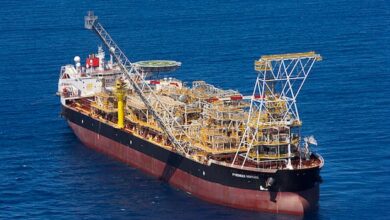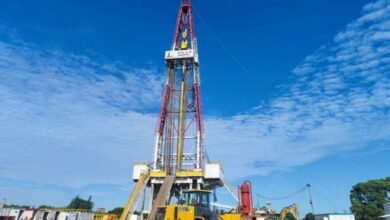Industry, Louisiana leaders warn National Commission of moratorium’s dire impact
Industry and community leaders warned the National Commission on the BP Deepwater Horizon Oil Spill and Offshore Drilling of the potentially dire consequences and folly of banning offshore drilling. The commission held its inaugural meeting on 12-13 July in New Orleans.
Diamond Offshore Drilling president & CEO Lawrence R Dickerson cautioned of a “slow motion domino fall” of companies first moving rig-operations jobs, then management and even headquarter functions outside the US.
“In effect, we will give away a high-wage, high-technology industry,” said Mr Dickerson, who served as chairman of IADC in 2003. During the same period, Mr Dickerson also served on the US Commission on Ocean Policy. Speaking of Diamond’s 1,120 GOM employees, he said, “These jobs are threatened as a result of the moratorium.”
He noted a comment from one Diamond employee contrasting the offshore drilling industry with the financial and automobile sectors, quoting, “How come they get bailed out and we get driven out?”
Diamond Offshore, which Mr Dickerson described as the largest US-based offshore drilling contractor, has thus far announced three rig moves out of the GOM.
Oceaneering president/CEO T Jay Collins predicted that his company would be forced into laying people off by September. Further, he added that the company would shift its focus to international markets while cutting back on its manufacturing operations in Morgan City, La. He noted that US deepwater technology leads the world, but it could lose that advantage.
Mr Dickerson predicted that investigations will determine that the Macondo blowout resulted from reckless operator mistakes. He told the commission that the three major blowouts of the last 40 years – Macondo, the Santa Barbara spill in 1969, and the Ixtoc blowout in 1979 – share a single commonality – insufficient mud in the hole to hold the pressure in the well.
To drill safely, he said, “Prevention is the key.” He acknowledged that improvements can be made in spill containment and response.
Michael Hecht, president & CEO of Greater New Orleans, told the committee that the impact of the spill was “dwarfed” by the moratorium. He warned that banning deepwater drilling and placing obstacles to shallow-water drilling would “turn an environmental disaster into an economic catastrophe.”
Despite government claims that permits for shallow-water drilling are moving forward, Mr Dickerson said, “Our shallow-water rigs cannot get permits.”
He cited the prevalence of safety cases in other regulatory regimes. Safety cases are not required by US regulators.
Sen. Mary Landrieu, D-La, urged the commission to immediately lift the moratorium. She told the commission that 42,000 wells have been drilled in the GOM since 1947, with 7,000 bbl spilled in the last 10 years. She termed Macondo a “rogue well” that produces a “decade of spills in an hour.”
Sen. Landrieu said that idling 33 rigs will consign 46,000 people to unemployment, the “equivalent of laying off every firefighter and policeman in Louisiana, Alabama and Mississippi.”
She also decried a “great injustice” that prevents Louisiana and other Gulf Coast states from receiving their fair share of revenue from offshore leasing. She said that $167 billion in leases have gone to the federal government, while Louisiana received a pittance. Meanwhile, restoring the wetlands after Macondo could cost more than $20 billion. Sen. Landrieu said that inland states receive a far greater proportion of revenues from federal mineral leases.




